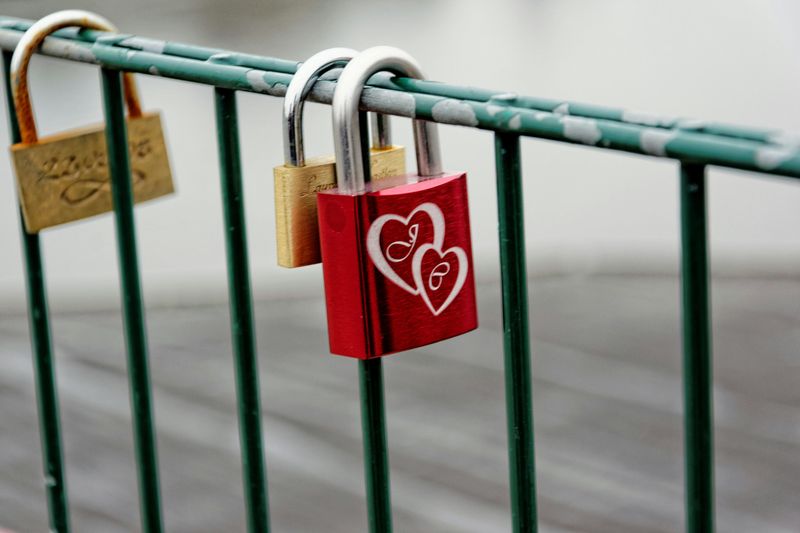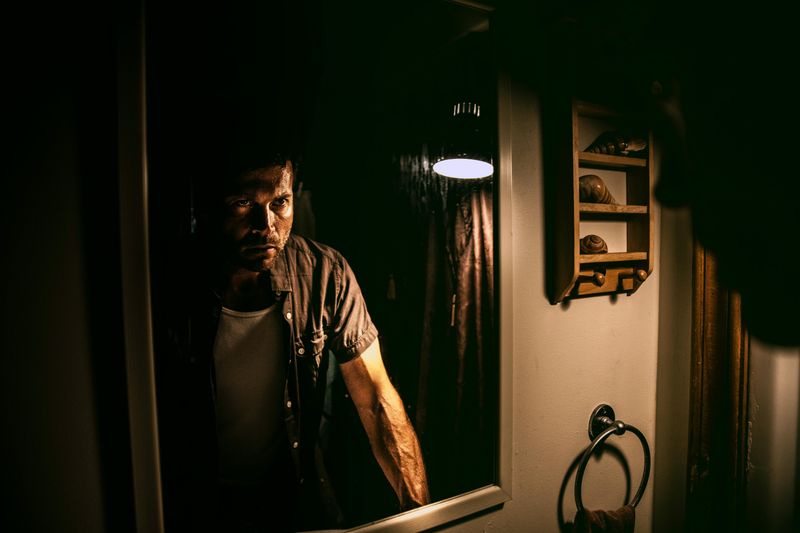When you’re in a relationship with someone carrying emotional baggage from their past, it can create invisible barriers between you. These unresolved feelings don’t just affect him—they can significantly impact your connection, communication, and future together. Recognizing these warning signs early helps you understand what you’re dealing with and whether this relationship can truly move forward.
1. Constantly Mentions His Ex
Her name slips into conversations where she doesn’t belong. Whether discussing restaurants, movies, or casual memories, his former partner becomes an unwelcome third wheel in your relationship. This habit reveals she still occupies significant mental real estate in his mind.
The problem isn’t just the mentions—it’s their frequency and context. When ordinary moments trigger memories of her, it signals he hasn’t created enough new experiences without her. Your stories together get overshadowed by his past narrative.
This behavior forces you to compete with a ghost and leaves you feeling secondary in your own relationship.
2. Keeps Mementos Everywhere
Physical reminders of his past relationship remain prominently displayed throughout his living space. Photos, gifts, or meaningful objects haven’t been packed away despite your relationship progressing. These aren’t just items—they’re emotional anchors keeping him tethered to another time.
You might notice how he handles these objects with special care or hesitates when you ask about them. The preservation of these mementos creates an emotional shrine that makes moving forward difficult.
Your presence feels like an intrusion into a space still partially reserved for someone else, creating an uncomfortable feeling of competing with memories.
3. Compares You to Previous Partners
Small comments reveal he’s measuring you against a template from his past. “She always…” or “She never…” statements slip into conversations, creating impossible standards based on selective memories or idealized versions of former relationships.
These comparisons might seem innocent or even complimentary sometimes, but they reveal he hasn’t fully embraced you as a unique individual. You’re being evaluated through a lens colored by previous experiences rather than appreciated for who you are.
This behavior forces you to compete with ghosts and leaves you feeling like a replacement rather than a chosen partner with your own identity.
4. Emotional Walls Block Intimacy
Vulnerability becomes a struggle as he maintains invisible barriers protecting himself from potential hurt. Conversations about feelings remain surface-level, with him redirecting deeper topics or shutting down entirely when emotions intensify.
Physical intimacy might exist without emotional connection. You notice how he maintains control during vulnerable moments, never fully surrendering to the vulnerability that builds true intimacy. Past wounds have taught him to guard his heart carefully.
This emotional unavailability leaves you feeling isolated even when physically together—connecting with someone who won’t fully let you in creates a peculiar loneliness that’s especially painful in a relationship.
5. Avoids Commitment Conversations
Future discussions trigger visible discomfort. Watch how his body language shifts when topics like moving in together, long-term plans, or deeper commitment arise. He might change subjects, make jokes, or become irritated without apparent reason.
This reluctance stems from unresolved fears about repeating painful patterns. Previous relationship endings have created an association between commitment and pain that manifests as avoidance or anxiety.
Your reasonable desire for security clashes with his unhealed wounds, leaving you questioning whether the relationship has genuine potential or if you’re investing in someone emotionally unavailable for the future you want.
6. Social Media Stalking His Ex
Digital breadcrumbs reveal his ongoing interest in someone supposedly in his past. You might catch glimpses of his screen showing her profile or notice he knows details about her current life that could only come from regular online monitoring.
This behavior isn’t about friendship or closure—it’s about maintaining a connection, however one-sided. The digital world makes it easy to remain emotionally tethered without direct contact, creating an invisible third party in your relationship.
His attention divided between present and past leaves you competing with someone who isn’t actively in his life but occupies valuable mental and emotional space nonetheless.
7. Relationship Triggers Cause Overreactions
Certain scenarios spark disproportionate emotional responses that seem disconnected from current circumstances. A minor disagreement erupts into a major conflict, or specific situations trigger withdrawal that leaves you confused about what went wrong.
These reactions aren’t really about you—they’re emotional echoes from past relationship wounds. His nervous system is responding to old pain being reactivated by similar situations, creating present-day reactions that match past intensity rather than current reality.
Walking through this emotional minefield leaves you constantly on edge, never knowing which innocent comment or action might detonate buried pain from relationships that ended long before you arrived.
8. Still Harbors Anger or Resentment
Bitterness seeps through when he discusses past relationships, revealing unresolved emotional wounds. The tone changes noticeably—his voice tightens, face hardens, or energy shifts when certain topics arise. These moments expose raw emotions still actively influencing his inner landscape.
Unprocessed anger doesn’t stay contained to past relationships. Eventually, these emotions contaminate current connections through projection, mistrust, or defensive behaviors designed to protect against anticipated hurt.
His unhealed resentment creates a toxic undercurrent in your relationship as you navigate around emotional landmines planted by someone else long before you entered the picture.
9. Recreates Unhealthy Relationship Patterns
History repeats itself as familiar toxic dynamics emerge in your relationship. You might notice him initiating arguments similar to ones he’s described from previous relationships or creating situations that confirm negative expectations about relationships.
This unconscious recreation happens because unresolved patterns seek resolution. Without processing what went wrong previously, he’s psychologically drawn to recreate similar scenarios, hoping for different outcomes or to prove his original beliefs correct.
You find yourself playing an unwilling role in his unfinished emotional business, trapped in dynamics established long before meeting him, but now affecting your relationship quality and emotional wellbeing.
10. Idealizes or Demonizes Past Relationships
Extreme perspectives replace balanced views of his relationship history. Former partners are portrayed as either perfect angels he lost or villainous characters who destroyed him, with little nuance or personal accountability in these narratives.
This black-and-white thinking reveals incomplete emotional processing. Healthy integration of past relationships includes recognizing both positive and challenging aspects while acknowledging shared responsibility for outcomes.
His distorted perspective creates impossible standards if he’s idealizing the past or unfair suspicions if he’s demonizing it. Either way, you’re measured against an unrealistic benchmark rather than being seen clearly for who you actually are.
11. Refuses to Discuss His Relationship History
Mysterious gaps appear whenever the conversation approaches his past relationships. Direct questions meet deflection, vague responses, or subject changes that create a wall of silence around significant parts of his history.
This avoidance differs from healthy privacy—it’s a defensive strategy preventing necessary processing. Unexamined relationships can’t provide valuable lessons that support growth and better future connections.
His refusal to engage thoughtfully about previous relationships signals emotional wounds he’s avoiding rather than healing. This avoidance creates distance between you as substantial parts of his life experience remain off-limits, preventing the transparency that builds genuine intimacy and trust.











